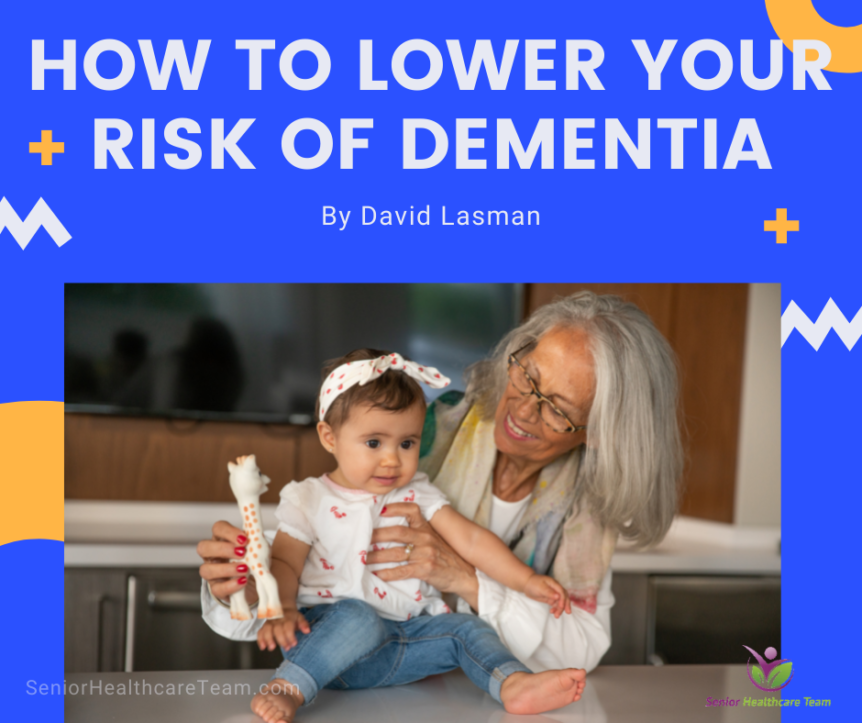It’s never too late (or too soon) to take preventive steps. Heredity influences whether or not a person develops dementia; having a parent or sibling with dementia is a risk factor.
But with the exception of rare diseases caused by specific gene mutations, experts believe that environment and lifestyle also play a significant role.
Researchers are actively studying these variables in clinical trials around the country and the world, with the goal of learning how to prevent dementia or slow its inexorable progression.
Yet despite the critical need for answers, investigators have yet to come up with solid evidence that any modifiable factor can reduce risk.
In fact, a series of reports published in the Annals of Internal Medicine in 2017, all analyzing the highest-quality research conducted to date on dementia, concluded that there wasn’t enough evidence to fully support any specific recommendations.
These reports, commissioned by the National Institute on Aging, found no direct proof that any of four strategies — cognitive training, over-the-counter supplements, pharmacological interventions, or physical activity — could prevent cognitive decline or dementia.
Yet even while emphasizing the limitations of the current research, the reports’ authors pointed to “encouraging although inconclusive” findings supporting the effectiveness of cognitive training, blood pressure control for people with hypertension, and physical activity.
The Alzheimer’s Association currently offers advice based on its own assessment of the best available science. Its recommendations focus on three of the most active areas of research: cardiovascular health, physical fitness, and diet.
Cardiovascular Health and Dementia: What’s the Link?
A healthy cardiovascular system relies on blood vessels that can circulate oxygen and vital nutrients effectively throughout the body. Damage to blood vessels anywhere in the body can lead to blood-vessel blockages in the brain, depriving brain cells of the essentials.
Damaged blood vessels in the brain can lead to vascular dementia, a condition that often coexists with Alzheimer’s disease and Lewy body dementia.
To protect the brain, the Alzheimer’s Association recommends following the same measures one would follow to protect the heart:
- Do not smoke.
- Keep blood pressure, cholesterol and blood-sugar levels within recommended limits.
- Eat a healthy, balanced diet.
- Exercise.
- Maintain a healthy weight.
- Limit alcohol consumption.
Aerobic Exercise May Benefit the Brain
There is some evidence that regular exercise can lower the risk of Alzheimer’s and vascular dementia by increasing blood and oxygen flow to the brain. (Check with your doctor before beginning any new exercise plan.)
A small study that supports the benefit of exercise, published in the April 2017 issue of the British Journal of Sports Medicine involved 38 older people who had been diagnosed with an early, mild form of vascular dementia.
After six months on an exercise regimen of brisk, one-hour walks three times a week, the walkers had lower blood pressure than subjects in the control group and significantly improved cognitive function, as assessed by brain scan.
A Diet for Dementia Prevention?

Researchers are actively investigating the potential of heart-healthy diets to protect the brain.
The Mediterranean diet, with its proven benefits to heart health, is one regimen they’re studying. This type of diet includes:
- Relatively little red meat
- Lots of whole grains, fruits, and vegetables. Supporting this recommendation, a study that appeared in the January 2018 issue of the journal Neurology found a correlation between daily consumption of green, leafy vegetables and a slowing of age-related cognitive decline. (5)
- Fish and poultry consumption at least twice a week
- Herbs as a flavoring rather than salt
- Nuts, olive oil, and other healthy fats instead of butter or other saturated fats
- The DASH (Dietary Approaches to Stop Hypertension) diet may also minimize dementia risk. It focuses on:
- Foods that are low in saturated fat, total fat, and cholesterol
- Fruits, vegetables, and low-fat dairy
- Whole grains, poultry, fruit, and nuts
- Limited intake of fats, red meats, sweets, sugared beverages, and sodium
Social Engagement and Staying Mentally Active
There is some evidence that social engagement can help keep the brain healthy.
Research is ongoing. One large study from China, published in the January 2018 issue of the journal Scientific Reports followed over 7,500 elderly men and women (age 65 and up) for over nine years. None had dementia at the beginning of the study but by the end, 338 did.
The researchers assessed social engagement in five ways, including marital status; living situation (did subjects live alone or with others?); emotional connectedness (“Do you have someone you can talk to when you need to share some of your thoughts?”); the availability of someone to turn to for help when needed; and participation in social activities.
The researchers concluded that high social engagement seems to prevent or delay dementia. The researchers also saw an association between maintaining or increasing social-engagement levels and reduced dementia risk.
Staying mentally active may also protect the brain in both long and short term. Learning a new skill, pursuing a new hobby, or taking classes may help preserve brain function.
Sleep and Dementia: Is There a Connection?
The relationship between sleep and dementia is complex. Researchers aren’t sure whether poor sleep increases the risk of dementia or vice versa — or whether both or neither are true. (9)
A small study published in the August 2017 issue of the journal Neurology offers some support for a sleep-dementia connection and the possibility that improving sleep habits might lessen dementia risk.
After following 321 subjects for as long as 19 years, the researchers saw 32 cases of dementia develop. Overall, every minute less of REM sleep was associated with approximately a 9 percent increase in the risk of dementia.
Ready to learn more about what to expect from your mind as you get older? Read this next: 10 Facts About Mental Health and Aging
By David Lasman – “Ask Medicare Dave” | President – Senior Healthcare Team
wwww.SeniorHealthcareTeam.com | 866-333-7340
Selecting the right healthcare plan through Medicare can be overwhelming and downright stressful. Senior Healthcare Team is a nationwide resource that provides guidance and support about Medicare to seniors at no cost to them and helps them to choose the most suitable insurance plan tailored to their specific needs and budget. Our goal is to educate and empower our clients to make the best decisions regarding their healthcare and clear up the confusion of Medicare. At Senior Healthcare Team, we aren’t partial to any one insurance company. Our loyalty is to our clients and our mission is to provide them with the best healthcare options at the very lowest cost.

